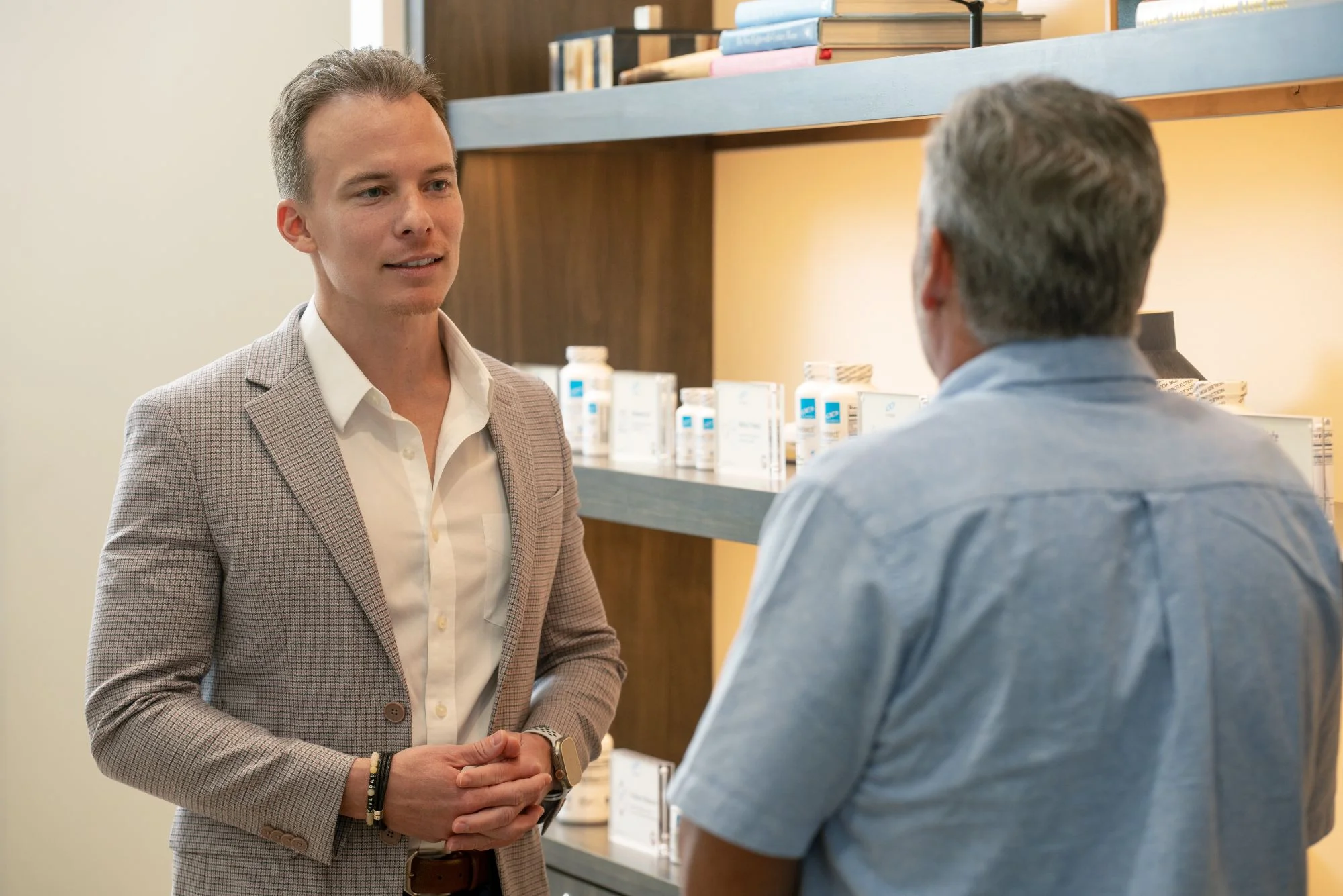
In our Summer Blog Series, we’ve taken a closer look at the Medicine 3.0 movement. In Part I, we focused on empowering you to recognize your individual health risks and, with your GCM physician, implement personalized prevention strategies. We moved to the technology component in Part II and shared some innovative diagnostics we use at GCM to help you identify risk, prevent disease, and optimize health. This month in our concluding Part III, we emphasize the importance of your own pathway for success when it comes to healthy living.
Identifying Your Individual Risk
You know the drill of a typical annual physical: step on the scale (!), take some tests, see the doctor, tap-tap-tap on the knee, open wide, how are you feeling?
You may even know how a typical executive-health physical works: more tests, a more thorough examination, a deeper dive into what your body is doing—and what it might be doing in the future.
In both of the above cases, there’s a standard battery of tests and checks. And in both cases, you’ll get recommendations for improving your health based on what those tests show.
But in Medicine 3.0, and at Griffin Concierge Medical, it’s about tailoring the tests, exams, and the recommendations specific to you. It’s about identifying your individual risk.
What’s Recommended for You Should be Different Than What’s Recommended for Others
Prevention advice generally tends to be the same for everyone. Is that helpful? Possibly. But is it the best advice for everyone? Probably not.
We all have different bodies and different risk factors. Through the evolution of AI and other technology, we can drill down into the recommendations that are best for you, given all the variables that may be at play.
“At GCM, we have a baseline set of studies we look at, but then based on the individual, we may go down a completely different direction for one person than we do for another,” says Radley Griffin, M.D., founder of Griffin Concierge Medical.
Each individual dictates their pathway to optimal health. We may reach a point where an issue doesn’t need to be investigated further. Or we may keep moving down a path as we discover a particular risk for a patient. We find your vulnerabilities in your body and then work backwards. What are the specific prevention strategies to offset your risks?
“We cannot begin to prevent unless we can recognize risk factors. And we can’t expect to have longevity if we’re not preventing,” states Dr. Griffin.
We Call in Reinforcements
Practicing internal medicine isn’t easy: We have to know a lot about a lot, but we can’t know everything about everything. That’s why we partner with the best-in-class specialists to get you the best insight into your specific risks.
If we identify Alzheimer’s in your genetic testing, we may call in a preventive neurologist to make recommendations. If you’re interested in optimizing VO2 max to enhance exercise capacity, we can bring in a specialist to work with you on that. If diet and nutrition are important to you, we look to our colleagues to take a deeper dive to help you focus on new strategies.
At Griffin Concierge Medical, relationships between our physicians and patients are what’s most important. We won’t be overly aggressive with someone who does not want to be overly aggressive, nor will we be dismissive with someone who wants to take a deeper dive.
“We’re here to partner with our patients and meet them where they are,” says Dr. Griffin. “It’s about discovering what is important for that particular patient.”
Personal Prevention Strategies
In Medicine 3.0, lifestyle changes can be crucial in optimizing health and helping prevent disease. Largely, these fall into the major categories of nutrition, exercise, stress management, and sleep. We don’t think that every person must eat a certain way or exercise a certain way—your recommendations will be based on your individualized data (And because data changes every day, it’s important to remember that recommendations can evolve over time.)
That said, here are two prevention recommendations that could make a big impact on your health:
- Decrease the amount of sugar and highly processed foods you eat. Added sugar is linked to so many conditions, such as cardiovascular disease, metabolic disease, and others. “I can’t overlook the sugar piece,” Dr. Griffin says. “Sugar is just a nefarious product. The highly processed materials are poison for us.” Even with the development of drugs that can aid in weight loss, diet is crucial. “For me, it’s about having awareness and intention around putting good fuel in my body that’s not causing unnecessary inflammation and not impacting other aspects of my life, such as sleep, blood pressure, and other numbers that are important,” he explains.
- Move the body often. That’s not only regular exercise, but also moving throughout the day. “A body in motion stays in motion,” says Dr. Griffin. “And I need to do a better job myself.” Keeping a strong skeletal-muscle system is one key to health, strength, and longevity. “We can work with professionals to identify the areas that need attention, but we can all challenge ourselves to mix up our routines a little bit,” he says.
When you think about all the aspects of Medicine 3.0—learning about your body and risks, leveraging the power of technology, thinking about what preventive strategies are best for you—it means that you can help take control of your future. The more you know, the more you can do.

Griffin Concierge Medical is a leader in concierge medicine in South Tampa and St. Petersburg. We partner with you to elevate your healthcare experience through a personalized approach and 24/7 access to your dedicated care team.



